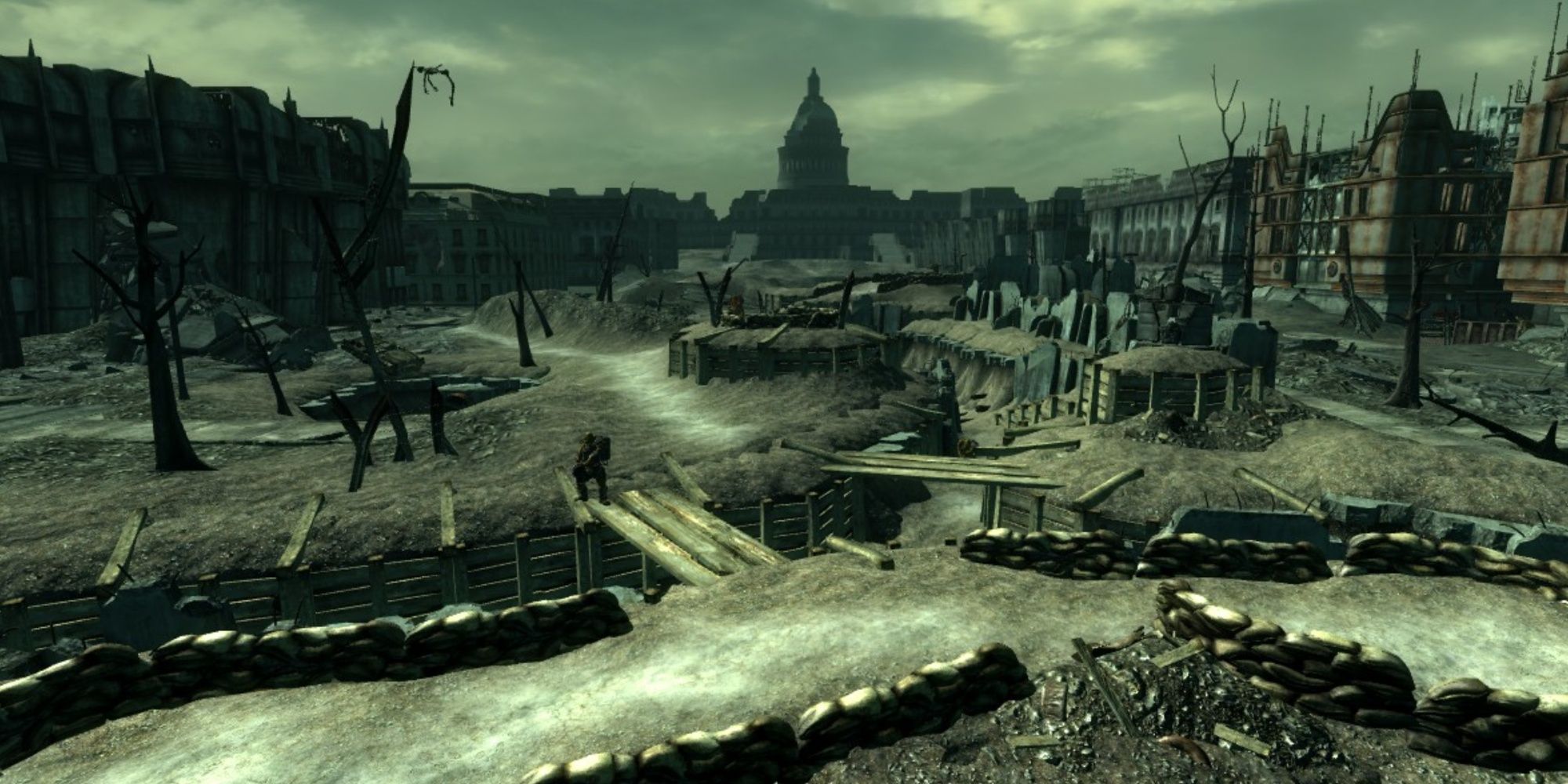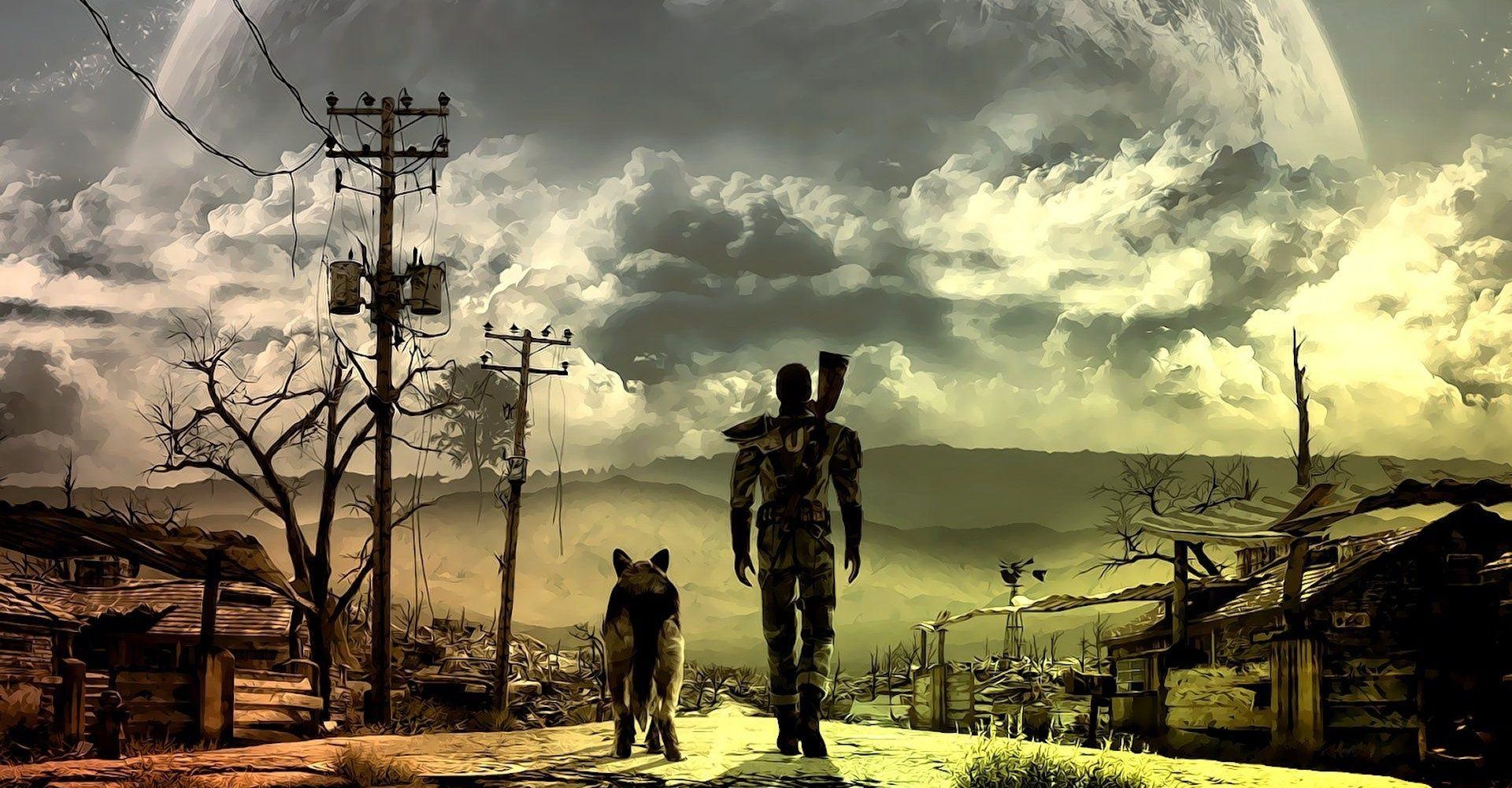
Fallout 3: A Trailblazer for Starfield a Decade and a Half Ago

Discover the groundbreaking impact of Fallout 3, Bethesda's game-changer in 2008 Unveiling a new direction for the franchise, this article traces the influential path that led to the highly anticipated release of Starfield
Highlights
The mechanics and perspective of the Fallout franchise underwent a revolutionary transformation in Fallout 3, transforming it into a real-time action-adventure RPG that shares similarities with Bethesda's other renowned series, The Elder Scrolls.
The relocation from California to the Capital Wasteland in Fallout 3 presented an opportunity to craft a fresh storyline and environment, deeply connecting with players and significantly contributing to the game's triumphant reception.
Moreover, Fallout 3 served as the cornerstone for Bethesda's present-day games, notably Starfield, empowering the studio to delve into darker themes and depart from conventional fantasy. This pivotal shift ultimately broadened their creative range and transformed their overall developer identity.
Bethesda, known as either a highly respected or infamous developer, has undeniably shaped its identity and reputation through its involvement in Fallout 3. Even 15 years after its release, the impact of this post-apocalyptic, first-person RPG can still be felt, particularly when examining Bethesda's current gaming endeavors.
Previously, the Fallout franchise was handled by Interplay Entertainment, who developed and published the first two games in the series. These initial entries featured a traditional CRPG format, with a top-down perspective and turn-based combat. However, in 2007, Interplay sold the rights to Bethesda, forever altering the series. Bethesda took charge and released Fallout 3 the following year, completely overhauling the mechanics and perspective, transforming it into a real-time action-adventure RPG that shared elements with Bethesda's renowned franchise, The Elder Scrolls. While Fallout 3 maintained the dark world and themes of its predecessors, it revitalized and reimagined various fundamental aspects of the series.
Fallout 3 Changed the Franchise
Although the first two Fallout games were successful and played a significant role in Interplay's success in the late 90s and early 2000s, their popularity was overshadowed by Fallout 3. Released in 2008, Fallout 3 arrived at a time when gaming was transitioning into the mainstream, with first-person and third-person shooters dominating the market. While Fallout 3 moved away from its original tactical, turn-based CRPG style and embraced elements of shooting games, it managed to maintain a distinct identity.
In Fallout 3, players assume the role of The Lone Wanderer, a character they create themselves, who escapes from Vault 101 in search of their exiled father. This journey takes them through the Capital Wasteland, a post-nuclear war depiction of the Washington, DC area that has been reduced to ruins. This new setting marked a significant departure from the previous games, which were set in California. The change in geography not only offered players a fresh visual experience but also allowed for a detached narrative that stood on its own, separate from the previous titles.
How Fallout 3 Changed Bethesda
The Lone Wanderer may not be the favored protagonist in the Fallout series, but their intimate and linear journey played a crucial role in the narrative of Fallout 3, resonating with numerous players. The focal point of the story revolves around the bond shared between The Lone Wanderer and their father and eventually evolves into a heroic tale of delivering safe drinking water to the inhabitants of the Capital Wasteland. Although the game deviated from the conventional "blank slate" RPG foundations, it compensated with a captivating and immersive personal narrative. This distinctive approach would later influence Bethesda's future titles.
Following Fallout 3, Bethesda's crown was further adorned with the release of Skyrim, which is often acclaimed as another brilliant masterpiece. Although Skyrim marked a return for Bethesda Game Studios to its fantasy RPG roots, the studio ventured back into the Fallout franchise a few years later, bringing forth Fallout 4 in 2015. This fourth installment amplified many of the key aspects of Fallout 3, featuring an even more distinct protagonist and refining the first-person shooter mechanics.
The departure from traditional RPG elements in the game caused controversy among Fallout fans who believed it veered too far towards a first-person action-adventure style, placing less importance on character development and decision-making. Despite this, the game received praise for its immersive atmosphere, expansive exploration, and well-crafted quests, which built upon the foundation set by Fallout 3.
Bethesda's highly anticipated release, Starfield, shares many similarities with the Fallout franchise, as well as the distinct charm and tone associated with Bethesda games, evident in The Elder Scrolls series. However, the connection between Fallout and Starfield runs deeper than that between The Elder Scrolls and Fallout. Both Fallout and Starfield are set in a science-fiction setting, featuring an emphasis on firearms and minimal fantasy elements. They also adopt a more mature tone, in contrast to the whimsical and fantastical nature of The Elder Scrolls games.
Fallout 3 revolutionized Bethesda's game development trajectory, paving the way for their highly-anticipated Starfield. This post-apocalyptic masterpiece empowered the company to venture into darker themes, breaking free from their previous high-fantasy Elder Scrolls series. Without Fallout 3's successful departure from traditional fantasy, Bethesda might have remained confined to that genre. By embracing speculative science fiction, Bethesda Game Studios embarked on a new path, setting the stage for Starfield and garnering immense anticipation from gamers.
Undeniably, Fallout 3 laid a solid foundation for Bethesda's current lineup, with Starfield being a key beneficiary. However, whether this was ultimately beneficial remains a topic of debate. While Starfield has received mixed reviews from both gamers and critics, critiques revolving around exploration, technical performance, and the main quest are reminiscent of issues faced by Fallout 3. The absence of deep RPG mechanics and meaningful decision-making can also be raised as a criticism against both games. Nevertheless, Fallout 3 undoubtedly expanded Bethesda Game Studios's artistic range and identity, transforming them into more than just the creators of The Elder Scrolls series. Consequently, the game forever altered Bethesda's reputation and opened up new opportunities for their future endeavors as a developer.
Fallout 3 is available now on PS3, Xbox 360, and PC.















